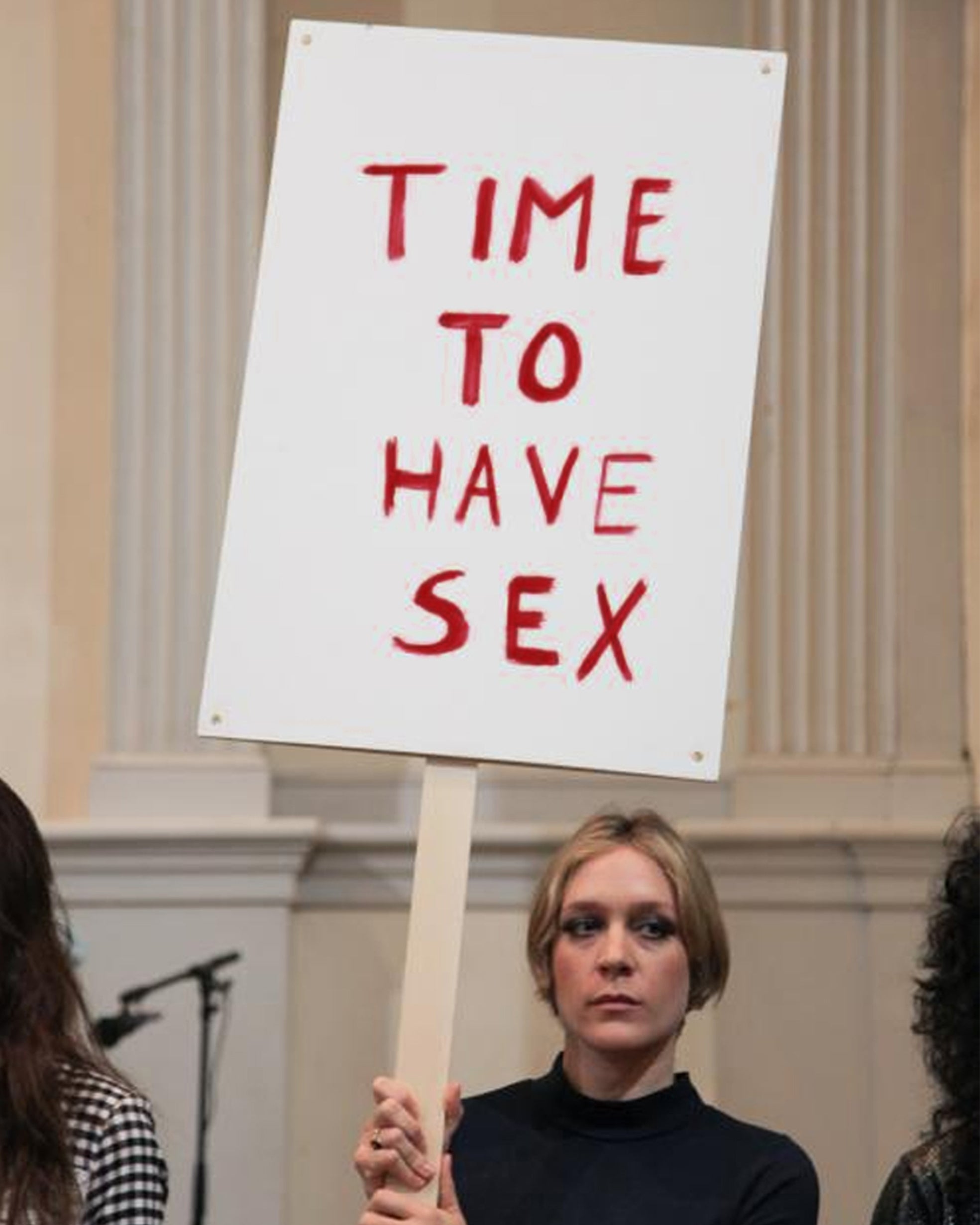Just because we're closing our legs to others doesn't mean we're closing ourselves off to pleasure. In 2025, celibacy has transformed from "something only nuns do" into a devotion to an even higher purpose – nurturing the self.
At Good Kitty, we believe in celebrating all expressions of sexuality, including the choice to abstain. Our approach to sexual wellness embraces periods of celibacy as opportunities for deeper self-discovery and enhanced pleasure when you do choose to engage in sexual activity.
The New Celibacy: Self-Care or Circumstance?
For many, voluntary celibacy represents liberation from the exhausting cycles of dating culture and meaningless casual encounters. It creates space for clarity, self-discovery, and surprisingly – better orgasms when they do happen. This intentional approach to sexuality allows people to focus on career growth and nurture platonic relationships without the complications of sexual dynamics.
"Celibacy isn't about denying pleasure; it's about reclaiming it on your own terms." – Dr. Emily Morse, Sex with Emily podcast
Research from the Kinsey Institute indicates that periods of sexual abstinence, when chosen consciously, can lead to increased body awareness and more intense pleasure experiences when sexual activity is resumed.
Voluntary vs. Involuntary: Different Paths to the Same Place
While celibacy can be one person's sanctuary, it can feel like another person's prison. As some choose to abstain from sex, others find themselves counting the days, feeling the metaphorical cobwebs gather, and wondering, "When will my time come?"
This experience even has a term – involuntary celibacy – referring to those who desire sexual connection but haven't found appropriate opportunities. Whether chosen or circumstantial, both forms of celibacy offer unique perspectives on our relationship with sexuality.

What's crucial to understand is that not having sex reflects less about your desirability and more about broader social contexts.
Why We're Having Less Sex Than Ever
Despite Australia and New Zealand ranking as the second and third horniest countries globally according to international sexuality surveys, residents are currently experiencing less sexual activity than ever before. This contradiction stems from several societal factors:
- Accelerated pace of life with limited downtime for intimate connection
- Poor work-life balance leaving people too exhausted for sex
- Chronic device use interfering with in-person intimacy
- Global anxiety diminishing libido and sexual desire
- Changing relationship dynamics in post-pandemic social structures
These factors create a perfect storm of circumstances that dampen sexual expression, even in cultures where sexual openness is celebrated.
Breaking Free from Sexual Scripts
While society often frames sex as a frivolous, recreational pursuit, many psychological obstacles stand between individuals and satisfying sexual experiences. For many people, sex and intimacy can feel threatening, unsafe, or even dangerous due to past experiences or cultural conditioning.
Finding someone we perceive as attractive, trustworthy, and safe enough to share intimacy with can be daunting. This reality highlights an important truth: sex is rarely as straightforward as "just doing it."
The less we engage sexually, the more we can find ourselves trapped in negative thought patterns. The internal narrative that "If I'm not having sex, I must be undesirable, unworthy, and unattractive" becomes a self-fulfilling prophecy. This creates the paradox of sexuality: the more we obsess about it, the more elusive it becomes, which necessitates a complete rethinking of our sexual narratives.
The Fallacy of Frequency
Most of us have constructed our sexual identities around "sexual script theory" – predetermined ideas about sexuality absorbed through media, pornography, and popular culture. The mistaken notion that "real sex" must involve penetration between specific genital configurations exemplifies how deeply these scripts influence our understanding of intimacy.
Another prevalent sexual script involves the concept of counting sexual partners or experiences. This scorecard mentality creates pressure to maintain certain activity levels to prove our desirability or worth.

This fallacy of frequency represents one of the most damaging aspects of conventional sexual scripts. We're conditioned to believe that frequency indicates sexual success and measures our desirability. However, as Dr. Karen Gurney, a clinical psychologist and psycho-sexologist discovered, "There is no correlation between frequency of sex and sexual satisfaction."
This groundbreaking finding confirms what we emphasize through our Quality Over Quantity Guide: you don't need prolific amounts of sexual activity to experience profound pleasure and satisfaction.
Despite what some might suggest, sexuality isn't a competitive sport. There are no winners or losers, and no scoreboard exists. Your sexuality operates outside arbitrary timelines and tally systems. Good Kitty's Sexual Wellness Philosophy emphasizes that pleasure is a personal journey rather than a performance metric.
Self-Pleasure as Sexual Autonomy
Another misconception embedded in conventional sexual scripts is the belief that "it takes two to tango" (or more, depending on your preferences). We're taught that sexual fulfillment requires finding appropriate partner(s) to satisfy our desires. This perspective unnecessarily limits our sexual expression.
You aren't a supporting character in someone else's narrative – you're the director of your own sexual journey. While safe, consensual, unrepressed sex with like-minded individuals remains one of life's free pleasures, sexuality encompasses far more than connection with others. It's fundamentally about connecting with yourself and exploring your identity.
Understanding how you relax, release, and experience pleasure represents crucial self-knowledge. Even without partner intimacy, you still have access to intimate experiences with yourself.
Recognizing that your sexual self has always existed within you can unlock an oasis of introspective intimacy. Just as your capacity for desire remains intact regardless of recent activity, your sexual identity continues to exist and evolve.
Embracing Sexual Seasons
As we embrace the natural cycles of life, we can apply the same acceptance to our sexual journeys. Just as winter invites inward reflection, periods of celibacy encourage deeper connection with our sexual selves. We can surrender to life's sexual seasons, focusing less on the mechanics of sex and more on nurturing ourselves as sexual beings.
Whether voluntary or circumstantial, celibacy provides opportunities to develop sexual autonomy. It allows for intentionality with our bodies, carefully considering what we truly desire before sharing ourselves with others. This mindful approach to sexuality is inherently attractive and empowering. A new model of the female sexual response cycle was created by Rosemary Basson, PhD in the early 2000s. This model — which is truly cyclical — helps normalize the many factors that can impact a woman's desire for sex and ability to get physically aroused. It also moves away from orgasm as a set endpoint and main indicator of whether or not sex is satisfying.
Remember: sometimes the most powerful sexual experiences happen within our own minds and bodies. As we like to say at Good Kitty, sometimes the best sex is the sex that never happens – because it exists perfectly in the realm of anticipation and imagination.
Frequently Asked Questions
Is celibacy the same as abstinence?
While often used interchangeably, these terms have subtle differences. Abstinence typically refers to refraining from specific activities (often sexual) for a period of time. Celibacy generally implies a longer-term lifestyle choice to refrain from sexual activity, sometimes (but not always) for spiritual or personal development reasons. Both can be valuable choices depending on your personal circumstances and goals.
Can celibacy improve my sexual experiences when I do have them?
Many people report that periods of celibacy lead to increased bodily awareness and more intense pleasure when they resume sexual activity. This aligns with research from the Journal of Sex Research showing that intentional breaks from sexual activity can reset sensitivity thresholds and increase appreciation for physical sensations.
How can I maintain my sexual identity during celibacy?
Your sexual identity exists independently of your sexual activity. During celibacy, you can nurture this aspect of yourself through fantasy, self-exploration, education, and mindful practice.
Is increased celibacy a sign of societal problems?
Population-level changes in sexual activity reflect complex social factors rather than individual choices. While some aspects of modern life (digital distraction, work stress) may negatively impact intimacy, voluntary celibacy often represents increased autonomy and intentionality around sexuality. The key distinction lies in whether the choice feels empowering or limiting to the individual.
How can I enjoy pleasure while choosing celibacy?
Pleasure extends far beyond partnered sexual activity. During celibacy, you can explore sensual pleasure through self-touch, massage, mindful bathing, movement practices, breathwork, and various forms of self-stimulation.
Remember: Your sexual journey is uniquely yours, with natural ebbs and flows that deserve honor and respect. At Good Kitty, we celebrate all paths to pleasure, including the rich self-discovery that can happen during periods without partnered sexual activity.
References:
- Gurney, K. (2023). Mind the Gap: The Truth About Desire and How to Futureproof Your Sex Life. Headline.
- Lehmiller, J. J. (2024). The Psychology of Sexual Health. Kinsey Institute Research Publications.
- Nagoski, E. (2021). Come As You Are: The Surprising New Science That Will Transform Your Sex Life. Simon & Schuster.
- Orenstein, P. (2022). The Pleasure Gap: American Women and the Unfinished Sexual Revolution. Harper.
- Kleinplatz, P. J., et al. (2020). Optimal sexual experiences: The components of extraordinary sexual encounters. Sexual and Relationship Therapy, 35(1), 1-16.
- Good Kitty Research Team. (2025). Modern Intimacy Survey Results. Good Kitty Research Publications.










